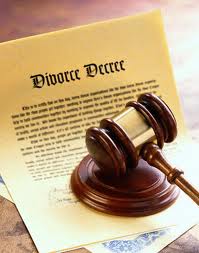1. An offer
2. An acceptance
3. Consideration which is the duty either party will be performing.
It is important to note that a contract comes into existence upon acceptance i.e. When the offer has been accepted by the other party.
Also the following factors must be satisfied as well:
Contractual Capacity/ competent parties: Both parties must be competent to enter into the agreement
Legality: The contract’s purpose must be to accomplish some goal that is legal and not against public policy;
Genuineness of Assent (Arguably part of agreement): The apparent consent of both parties must be genuine; and
Form: The agreement must be in whatever form (e.g., written, under seal, etc.) the law requires.Every contract involves at least two parties the offeror/ promisor, who makes the offer/promise to perform, and the offeree/promisee, to whom the offer/promise is made.
A contract could be an:
• Express Contract: A contract in which the terms of the agreement are fully and explicitly stated orally or in writing.
• Implied-in-Fact Contract: A contract formed in whole or in part by the conduct (as opposed to the words) of the parties. In order to establish an implied-in-fact contract,
(1) the plaintiff must have furnished some service or property to the defendant,
(2) the plaintiff must have reasonably expected to be paid and the defendant knew or should have known that a reasonable person in the plaintiff’s shoes would have expected to be paid for the service or property rendered by the plaintiff, and
(3) the defendant must have had the opportunity to reject the services or property and failed to do so.
• Quasi or Implied-in-Law Contract: A fictional contract imposed on parties by a court in the interests of fairness and justice, typically to prevent the unjust enrichment of one party at the expense of the other.
FORMAL AND INFORMAL CONTRACTS
• Formal Contract: A contract that requires a special form or method of formation (creation) in order to be enforceable.
• Contract Under Seal: A formalized writing with a special seal attached.
• Recognizance: An acknowledgment in court by a person that he or she will perform some specified obligation or pay a certain sum if he or she fails to perform (e.g., personal recognizance bond).
• Negotiable Instrument: A check, note, draft, or certificate of deposit — each of which requires certain formalities (to be discussed later).
• Letter of Credit: An agreement to pay that is contingent upon the receipt of documents (e.g., invoices and bills of lading) evidencing receipt of and title to goods shipped.
• Informal Contract: A contract that does not require a specified form or method of formation in order to be valid.
• The vast majority of contracts are informal (without a seal)
• An executory contract [4302.10]is a contract that has not yet been fully performed by one or more parties.
OTHER TERMS
• Valid Contract [4302.13]: A contract satisfying all of the requisites discussed earlier — agreement, consideration, capacity, legal purpose, assent, and form. By contrast;
· A void contract [4302.14]is a contract having no legal force or binding effect (e.g., a contract entered into for an illegal purpose);
· A voidable contract [4302.15] is an otherwise valid contract that may be legally avoided, cancelled, or annulled at the option of one of the parties (e.g., a contract entered into under duress or under false pretenses); and,
·An unenforceable contract is an otherwise valid contract rendered unenforceable by some statute or law (e.g., an oral contract that, due to the passage of time, must be in writing to be enforceable).













